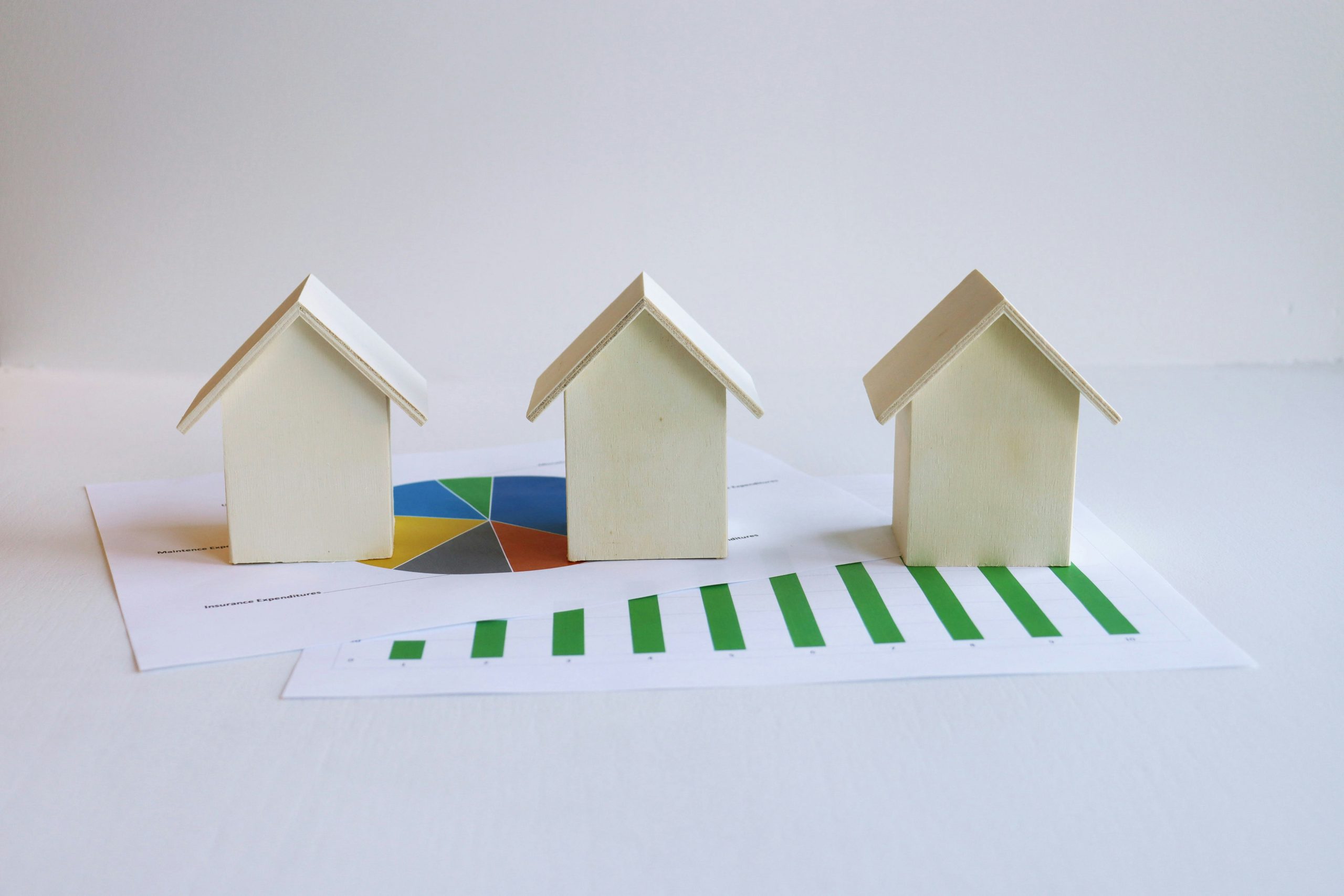Pakistan’s tax system, while often perceived as intricate, presents a nuanced picture when it comes to property taxation. This article aims to demystify the tax obligations associated with property ownership in Pakistan, shedding light on the common misconception regarding non-filers and providing a comprehensive overview of the various property taxes levied in Pakistan for 2025 applicable from July 2024 till June 2025.
Understanding Property Taxes
Owning property in Pakistan, whether for personal residence, generating rental income, or as an investment, necessitates a thorough understanding of the diverse taxes involved. These taxes contribute significantly to government revenue and have considerable economic implications.
Taxes on Property Owners
Property owners in Pakistan are subject to couple of taxes including;
Capital Value Tax (CVT)
Capital Value Tax is an annual tax imposed on the fair market value of property, as determined by the Federal Board of Revenue (FBR). The rate of capital value tax on properties in Pakistan is 2% of the property’s fair market value.
Deemed Rental Income Tax (Section 7E)
Introduced under the Finance Act, 2022, this tax treats every resident person as having derived income equivalent to 5% of the fair market value of their immovable property. The tax rate on this deemed income is 20%.
The 7E tax itself is an annual tax on the fair market value of owned property exceeding PKR 25 million (with some exemptions), and it has faced complexities and controversies regarding its calculation based on fair market value versus cost price and the taxation of unrealized gains.
Rental Income Tax
Rental income in Pakistan is subject to two types of taxes. Slab rates are applied to rental income, with higher income brackets facing higher tax rates. Withholding tax rates on rental income are from 0% to 50% depends on rental income and active taxpayer status. Similarly final income tax on rental income is from 0% to 45%.
Learn all about rental income tax in Pakistan for 2024-25. Explore tax slabs, deductions, savings tips, and a calculator to maximize benefits and minimize liability.
Urban Immovable Property Tax
Property tax, generally speaking, is a levy imposed by local governments on the ownership of real estate. The revenue generated from this tax is typically used to fund local public services. In Pakistan, the Urban Immovable Property Tax (UIPT) serves this purpose at the provincial level.
Taxes on Agricultural Income
Although agricultural income is exempt from federal tax, it is taxable at the provincial level in Pakistan. Each province has the authority to set its own rules for taxing agricultural income, so your tax liability depends on where your land is located.
- Punjab: Agricultural income up to Rs. 400,000 is exempt. Income above this is taxed according to Punjab’s agricultural tax rates.
- Sindh: Income up to Rs. 600,000 is exempt. Tax applies if income exceeds Rs. 600,000, based on Sindh’s agricultrual tax slabs.
- Khyber Pakhtunkhwa: Similar to Sindh, in KPK income up to Rs. 600,000 is tax-free. Income over Rs. 600,000 is taxed as per KPK’s agricultural tax rates.
Taxes on Sale of Property
If you’re selling property in Pakistan, you may be subjected to some taxes based on value of property, filer status and hold of property. Tax and rates on selling properties are;
Capital Gain Tax (CGT)
This tax is levied on the profit derived from the sale of property within six years of its acquisition.
- Properties Bought Before June 30, 2024: The CGT rate starts at 15% in the first year of ownership and decreases by 2.5% annually until it reaches 0% after six years.
- Properties Bought After July 1, 2024: A flat CGT rate of 15% is applicable regardless of the holding period.
Advance Tax (236C)
This advance tax is collected at the time of property transfer. The rates of 236C in Pakistan applicable from July 1, 2024 till June 30, 2025 depends on filer status:
| Property Value (Rs) | Filer Tax Rates | Late Filer Tax Rates | Non-Filer Tax Rates |
|---|---|---|---|
| Up to 50 Million | 3% | 6% | 10% |
| 50 Million – 100 Million | 3.5% | 7% | 10% |
| Over 100 Million | 4% | 8% | 10% |
Tax on Buying Property
Property buyers in Pakistan are subject to pay advance tax and other fees depends on type and value of properties. It should be noted that payments exceeding PKR 5 million for property transactions must be made through banking channels as per newly introduced section 75A.
Advance Tax (236K)
The buyer pays an advance income tax on the purchase of property. Advance tax on the property depends on its transaction value and filer status. 236K tax rates in Pakistan applicable from July 1, 2024 till June 30, 2025 are listed below:
| Value (Rs) | Filer | Late Filer | Non-Filer |
|---|---|---|---|
| Up to 50 Million | 3% | 6% | 12% |
| 50 Million – 100 Million | 3.5% | 7% | 16% |
| Over 100 Million | 4% | 8% | 20% |
Adjustable & Non-Adjustable Property Taxes
It’s crucial to differentiate between adjustable and non-adjustable taxes. Adjustable taxes, like WHT and CGT, are essentially advance tax payments that can be claimed back or adjusted against your final income tax liability at the end of the tax year. Non-adjustable taxes, such as stamp duty and registration fees, are transactional costs that cannot be reclaimed.
Adjustable Property Taxes
To claim adjustable taxes, you need to file your income tax return and provide the necessary documentation to show the advance tax payments made. It’s important to note that the advance withholding taxes (Section 236C and 236K) paid during the sale and purchase of property can be adjusted against the final tax liability. Advance tax on property can also be adjusted while calculating capital gains tax. Let’s consider a simplified example:
Mr. Ali purchased a property in 2023 for PKR 10 million and sold it in 2025 for PKR 12 million.
- Capital Gain: PKR 12 million – PKR 10 million = PKR 2 million
- CGT Rate (for a property held for 2 years and purchased before June 30, 2024): 12.5%
- CGT Liability: 12.5% of PKR 2 million = PKR 250,000
- Advance WHT paid by Mr. Ali (assuming property value was above PKR 100 million and he was a filer): 3% of PKR 12 million = PKR 360,000
In this case, Mr. Ali has paid more in advance WHT (PKR 360,000) than his actual CGT liability (PKR 250,000). He can claim a refund of the excess amount (PKR 360,000 – PKR 250,000 = PKR 110,000) when filing his income tax return.
Advance tax (236C) can become the minimum tax liability if the property is sold and a new one is bought within the same tax year.
Non-Adjustable Property Taxes
These are fees rather than other taxs on purchase of property. Costs associated with the transaction of property purchases are not adjustable in taxes. They usually include;
- Stamp Duty: A tax levied on legal documents, including property transfer documents. The rate varies by province.
- Property Registration Fee: A fee charged by the government for registering the transfer of property ownership.
- Cantonment Board or Local Government Taxes: Various charges and taxes may be levied by local authorities.
Tips for Saving Property Taxes
Understanding these taxes is crucial for both investors and homebuyers. The tax implications can significantly affect the overall cost of property ownership and the profitability of investments. Several crucial factors can help minimize your tax burden and ensure compliance:
- Tax Implications: Whether buying, selling, or renting property in Pakistan, each transaction triggers specific tax obligations which are almost covered in this article.
- Accurate Valuation: Knowing the fair market value of your property is essential for calculating property tax. Property transactions are often recorded at DC rates or FBR property valuation rates, it’s essential to be aware of the potential tax implications if the actual transaction value is significantly higher.
- Proper Documentation: Keeping detailed records of property transactions and valuations is vital for accurate tax reporting. Maintaining all relevant documents, including sale agreements, purchase deeds, payment receipts, and valuation reports, is crucial for accurate tax reporting and potential audits.
- Bank Transactions: Opting for bank transfers for property transactions provides a clear and auditable record, which is beneficial for tax purposes, especially concerning Section 75A.
- Taxation on Accrual Basis: In Pakistan, income from property is generally taxed on an accrual basis. This means that income is taxed when it is earned, regardless of when it is received. For instance, rental income is taxable even if the tenant has not yet paid the rent.
- Professional Tax: A nominal tax levied by some provincial governments on professionals involved in property transactions (e.g., real estate agents).
- Become Active Filer: Non-filers in Pakistan invariably face higher property tax rates. However, this is not universally applicable. You can file your tax returns by our experts property tax consultants in Pakistan.
- Staying Updated: Property tax regulations can change, so staying informed about the latest amendments is crucial. This article is based on property tax rates applicable for Financial Year 2024-25.
Conclusion
Navigating property taxation in Pakistan requires a comprehensive understanding of the various taxes, their applicability, and the relevant regulations. While the system can seem complex, being informed about your tax obligations as a property owner or investor is essential for compliance and effective financial planning. Staying updated on the latest tax laws and maintaining proper documentation are key to navigating this landscape successfully. Remember that seeking professional tax advice can provide personalized guidance based on your specific circumstances.





Dear sir ,
I am selling the property worth Rs. 1,00,00,000 ( one crore) .
Kindly guide for government as well as FBR taxes.
I am filar & resident of Sindh providence
All the relevant taxes related are mentioned. For exact tax-information you will need to contact your registrar. As their use to be involved some local taxes other than above as mentioned.
AoA sir, I purchased a plot in Islamabad the rate of per Marla is 575,000/- in government record DC rate. Now, I transferred this plot own my name kindly guide me about tax on registry’s. Thanks
Most frequent and known taxes are already discussed above, for exact tax-cacluation you should reach your registrar as there use to be some local taxes and transfer fees involved other than property taxes listed above.
Salam alaikum sir what are taxes pay by seller and purchaser in karachi like advance tax gain etc plz give detia
AoA, I have purchased 5 Marla plot in 2019 in Park View Lahore and transferred on my name in 2019 and now I want to build it, They r asking to deposit 236k advance Tax amount 168000 in order to build house, kind confirm, it’s apply or not while I hv purchased in 2019
236k is paid at the time of transfer of property not after that. These might be payments for possession or some other developmental charges which are imposed by Housing societies. (Edited)
I purchased a flat in Karachi and paid 3% adv tax under sec 236 . I am holding flat and not sold it yet. Is this tax refundable while filing tax return for FY 2024-2025?
yes
Yes you can adjust it in 236k advance tax with your employer in same year, while in income tax returns in upcoming financial year.
Sear sir. Your elaborated tax info is appreciated. My quest is:
If I sell my 30 year old house in May 2025. then how much and what sort of tax to pay in my tax return on 30th June 2025?
no gain tax on sale of old property.
just the advance taxes on slae of property including transfer charges etc.